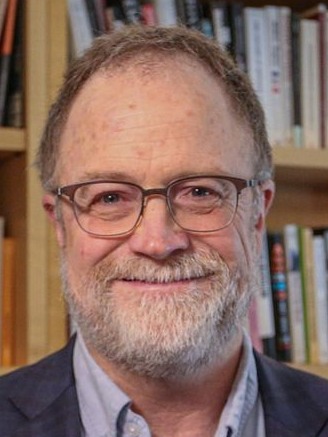PROVIDENCE, R.I. [Brown University] — Over the last few months, Russian President Vladimir Putin has built a military presence of more than 130,000 troops on the country’s border with Ukraine. Despite Russian officials’ claims that the troops were there simply to conduct seasonal drills, Putin’s move has prompted many world leaders, including in Europe and the United States, to speculate that a full-scale invasion could be on the horizon.
Putin now claims that Russian troops have partially pulled back from the border and that he’s ready to work with Western leaders on a political solution. That means the world could soon get an answer to its major burning question: Would Russia actually invade Ukraine?
One expert says that question may not be the right one to ask.
In a recent “Trending Globally” podcast episode produced by Brown University’s Watson Institute for International and Public Affairs, Brown sociology professor Michael D. Kennedy said framing the issue as a “will-they-or-won’t-they” story may actually obscure more than it illuminates. For one thing, he said, Russia has already invaded Ukraine: In 2014, after the country overthrew its government and the president fled, Putin sent Russian troops into Crimea and the Donbas, where they remain today. And for another, it’s valuable to instead investigate how the current crisis — regardless of how it ends — is one example of a rising leadership trend that could lead to increased conflict across the globe.
The early-February conversation was hosted by “Trending Globally” producer Dan Richards; lightly adapted excerpts are included below, along with audio of the full podcast episode.
Q: Can you start by explaining the relationship between these two countries, and why it’s such a special relationship in the eyes of Vladimir Putin?
Russia was the largest and most significant power within the Soviet Union. The Soviet Union had 15 Soviet Socialist Republics, and Russia was the leading actor. Ukraine, you could say, was the second most important actor. [When] Putin came into power… [he] turned out to be a far more tactically brilliant leader of Russia than anyone ever expected. But that comes on the heels of an assumption that was profoundly erroneous through the 1990s, and that was that Russia was permanently defeated, that it was always going to be a second-class power.
Most Russians had difficulty swallowing that, especially when all the promises of that radiant future through markets and democracy did not come to pass. So many people right now are fond of referring to Putin's recent manifesto, in which he talks about the raw deal Russia got at the end of the Cold War, and also the enduring brotherhood of Russia and Ukraine.
In my second book, I wound up comparing Estonia and Ukraine. Estonia has fulfilled the promise of what the West offered. Ukraine also accepted the invitation, but it hasn't been nearly so promising — not only because Ukraine is so much bigger and so much more complicated, but also because Putin has been trying to undermine the experiment Ukraine has undertaken to become "part of the West.”
Q: According to the Ukrainian government, between 2014 and today, roughly 14,000 Ukrainians have died — which is why, according to you, trying to understand the exact initial spark of this current buildup misses the point. This crisis has been going on for years. And in some ways, it's just a part of a series of crises that goes way beyond Ukraine. And seeing this bigger pattern is essential for understanding the stakes of this moment.
The most obvious predecessor to this incursion into Ukraine is what happened in Georgia in 2008. The reason that that's a significant precursor is because Georgia is the only sovereign state that Putin actually attacked before he attacked Ukraine [in 2014]. And what's also very important to keep in mind is that gambit won for Putin. Why? Because by taking advantage of unrest in parts of Georgia, Putin has been able to establish military alliances and bases that, in effect, would prohibit Georgia from ever joining NATO — just like he's [now] trying to prohibit Ukraine from joining NATO.
